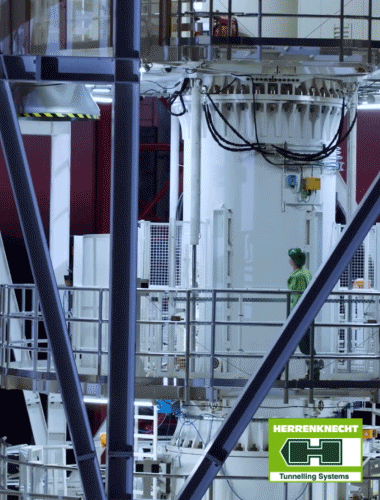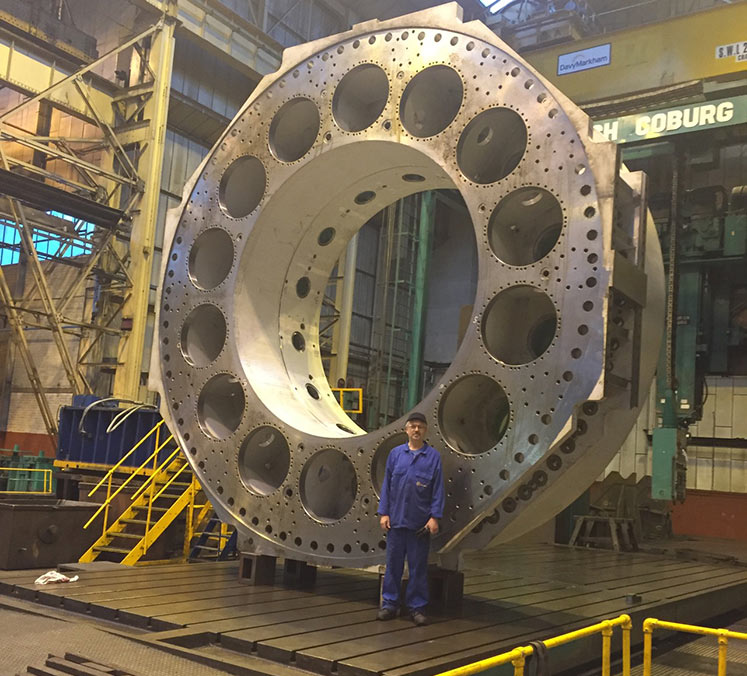Time for UK politics to get boring 09 May 2019
When the Channel Tunnel was officially opened by Queen Elizabeth II and the French President François Mitterrand in a ceremony held in Calais almost 25 years ago, it marked a triumph in the UK not just for the construction industry but also for UK manufacturing. In the years before the tunnel was built, however, the project faced a storm of criticism. Like the current HS2 project, there was fierce opposition to the tunnel and deep scepticism about the value of building a transport link that would better connect two interdependent economies. There were fears of delays and cost overruns – justified as it happened – and one Government Minister even talked about the risk of rabies coming to Britain through the tunnel.
Despite these early doubts, few today question either the wisdom or tenacity of those with the vision to dream big, and the impact their vision continues to have on the UK economy. But will the impact of HS2 be the same a quarter of a century on? The official HS2 forecasts estimate economic gains of about £15 billion a year. These are huge numbers. But unlike the 1980s, when Britain’s state-dependent manufacturing base had yet to be ravaged by de-industrialisation, UK manufacturing firms – and their employees – were able to share in the benefits that came from the construction the Channel Tunnel.
Take Sheffield as an example. When the Queen and the French President marked the official opening of the Channel Tunnel in May 1984, there was an especial pride that day among the skilled engineers at Davy Markham. They had designed and manufactured many of the high-technology tunnel boring machines that had helped create the twin 50.5km (31.4 mile) long tunnels and their service tunnel that are used today to shift more than 20 million tonne of freight and millions of passengers each year between Europe and the UK.
By contrast, Davy Markham today stands mothballed and as a symbol of a once vibrant industrial capability at risk of being lost forever. But it need not be so. Recently, HS2 engaged the Advanced Manufacturing Research Centre (AMRC) in Sheffield to investigate the feasibility of the UK being able to manufacture and assemble TBMs for its project.
The supply chain assessment sought to:
- Better understand the likely sub-system and sub-component values as a proportion of the overall value of the TBM.
- Assess the landscape of the tier 2 and 3 market and the capability of the UK supply chain to integrate into the tier 1 TBM supply chain.
- Understand the potential combined manufacturing capabilities of supply chain organisations to add value to TBM manufacturing and delivery, including any gaps.
- Explore the extent of the opportunity to support growth in the UK content and export potential.
The study revealed that, while coal mining in the UK has shut down, the skills, experience and technology that underpinned the industry have continued to flourish and grow a capability that has evolved into an export-led industry that supports mining and tunnelling around the world. UK companies now supply major mine operators and TBM manufacturers, including Herrenknecht and The Robbins Company. These firms contribute export earnings to the UK in excess £700 million per annum through the design and manufacture of mining and construction equipment that meets the most stringent quality standards, environmental requirements and extreme logistical challenges.
The AMRC study, also found that UK manufacturers are leaders in the expanding global nuclear decommissioning sector. UK manufacturers have also honed skills in the offshore oil and gas markets with spin-offs including remotely operated vehicles (ROVs) being developed to provide support to the international mining and offshore renewable energy markets. In the northeast of England, the company Soil Machine Dynamics (SMD) has developed a world- class reputation in the design, manufacture and assembly of large mining vehicles which operate on the sea bed.
This prompts the question: Could the UK rebuild its TBM capacity? The answer is an emphatic yes.
The AMRC study identified suitable facilities for TBM assembly and testing at Renfrew in Scotland and at the BAE facilities in Portsmouth and Glasgow. Preliminary investigations also confirmed the Doosan Babcock Renfrew workshops could accommodate the simultaneous assembly and testing of up to six TBMs such as those required by HS2.
While the AMRC report confirmed the UK may have lost much of its competence in the design and manufacture of some of the high integrity TBM components, such as main bearings, detailed analysis of the study revealed that the UK can still supply about 75% of the skills and equipment required to design, manufacture, assemble and test TBMs for HS2. It also confirmed high integrity components not manufactured in the UK are readily available via international supply chains.
The European TBM market is currently dominated by Herrenknecht, with the majority of components being sourced from Germany and China. Collaboration with TBM suppliers that do not retain inhouse manufacturing, however, would unlock a significant opportunity for the UK supply chain to re-engage at a strategic level thereby allowing targeted investment in people, plant and equipment to rebuild UK capability and capacity.

AMRC employs 500 qualified researchers and engineers at the Advanced Manufacturing Park and Sheffield Business Park facilities in South Yorkshire and at branches in Broughton and Preston in the UK
Moreover, opportunity would then exist to concentrate on the development of a number of preferred suppliers that could develop sustainable medium and high integrity products and systems that could continue to be part of a global TBM supply chain, driving significant gains in exports. In addition, the study revealed the potentional socio-economic benefits would be widely spread, particularly in the north of England and Scotland.
The study concluded that UK-based consultants are involved in high profile tunnelling projects both in the UK and around the world and opportunity exists to strengthen research links between UK universities, consultants and manufacturers to develop technologies in support of the TBM market. In addition, the innovative approach by the UK Government to provide export finance means the supply chain should be able to benefit from this support when bidding for export opportunities.
The AMRC report points clearly to the opportunities of using major infrastructure investments, like HS2, as a smart way of stimulating innovation in an already strong, export-led UK capability. Who knows, this could even breathe new life into Davy Markham, which is at the very heart of the Advanced Manufacturing Innovation District in the north of England. Creating high-value, high-skilled jobs in the former coalfields, through a renaissance in heavy machinery manufacturing such as TBMs, would be a fitting legacy for HS2 – and that is real value for money.
References
- Civil contract preferred bidders for UK HS2 Phase I – TunnelTalk, July 2017
- Arguing for the UK High Speed 2 project – TunnelTalk, March 2014
- Extra tunnels seal UK high speed rail approval – TunnelTalk, January 2012
- High-speed rail pitch for the UK – TunnelTalk, August 2009
- UK rail from the Channel Tunnel and beyond – TunnelTalk, December 2010
- Channel Tunnel handshake of history – TunnelTalk, December 2010
- Channel Tunnel: A world of tunnelling together – TunnelTalk, December 2010
- Channel Tunnel hindsight – TunnelTalk, February 1993
- Award for British inventor of slurry TBM concept – TunnelTalk, October 2018
- Genesis of the vacuum segment erector – TunnelTalk Archive
- Elections and mega projects – TunnelTalk, May 2010
- Innovate or be marginalized warns new ICE President – TunnelTalk, November 2015
- Political upheaval and Brexit – TunnelTalk, March 2019
|
|
|
|
|
Add your comment
- Thank you for taking the time to share your thoughts and comments. You share in the wider tunnelling community, so please keep your comments smart and civil. Don't attack other readers personally, and keep your language professional.






